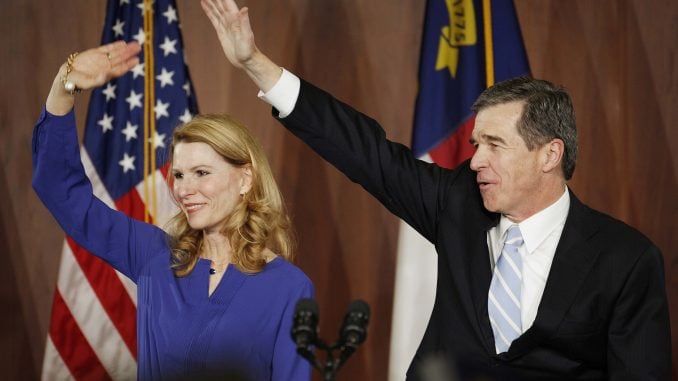
Congratulations to Roy Cooper, North Carolina’s governor-elect. It was a long race, but Gov. Pat McCrory’s concession on Dec. 5 made the 2016 gubernatorial race slightly shorter than the 2000 presidential election, a contest Albert Gore, Jr. conceded to George W. Bush on Dec. 13 of that year.Cooper deserves credit for sticking to his guns on making the election a referendum on Pat McCrory. All indications are that was the right move politically. Cooper’s victory is proof that in some election years, it’s better to run against something than for something. But it also means he took precious few policy positions on the campaign trail. True, there’s no law saying that a candidate must have a discernible platform but it’s not necessarily a good thing, either.There were a few times Cooper said something definite. One of the most important promises Cooper made was that he would not raise personal and corporate income taxes back to the job-killing levels before Republicans took over state government. Both corporate and personal rates were some of the highest in the South, making it hard for the state to compete.Next, Cooper said he would pursue “middle-class tax cuts.” If the current budget surplus projections continue, this will be a policy worth exploring, depending on how it is structured. To be most effective, citizens consumers and investors must believe the cuts will be around for a long time. Tax cuts also must be broad-based; too often liberals use the tax code to promote things they like at the expense of things they don’t (e.g., solar panels over fossil fuels).Cooper also vowed to raise teacher pay to “at least” the national average. Here he is helped by years of Republican-led raises for teachers. Teacher pay has the potential to be an area of cooperation for Cooper and Republicans in the legislature. But when legislative leaders negotiate with Gov. Cooper, they need to insist on the continued reforms of the compensation system with which they have dabbled since gaining the majority. There is one other aspect of the teacher pay issue that bears noting. Cooper said he supports raising teachers’ salaries to the nation’s average, but he also said that average teacher pay numbers were “contrived” and misleading. If that metric is so bad, why base a campaign pledge on it? The last substantive and concrete pledge Cooper made was to expand Medicaid in the state. If we are going to contemplate expanding the safety net in North Carolina, we need to do so with eyes wide open about whom the expansion will cover and how much it will cost the state. While taxpayers consistently voice support for a safety net to bridge those in need to sufficiency, expanding it to cover able-bodied adults without dependents those who are most able to find work may prove a bridge too far. As for cost, Cooper apparently thinks that he could expand Medicaid with “100 percent federal money,” as he put it in one interview. In reality it will be 90 percent federal and 10 percent state. And with Republican leadership in Washington, Congress may well roll back able-bodied Medicaid eligibility anyway.Cooper has said that if elected, he would “put partisan politics aside so we can turn around our economy and fix our schools.” North Carolina’s economy is in good shape, but it can improve. Broad tax cuts, at which Cooper hinted, would help. The state’s public schoolchildren have been helped by innovation and competition, and teacher retention through higher early-year salaries should sow the seeds of further progress. If Cooper wants to help teachers more, that’s laudable but the focus should always be on students first.Here’s hoping that the next governor and the legislature can produce results of which all North Carolinians can be proud. That will not only be a bipartisan achievement, but will go a long way toward healing the wounds of the divisive campaigns of 2016.Drew Elliot is a member of the North State Journal’s editorial board, separate from the news staff. Unlike other newspapers, the North State Journal does not publish unsigned editorials; the author or authors of every editorial, letter, op-ed, and column is prominently displayed. To submit a letter or op-ed, see our submission guidelines.



